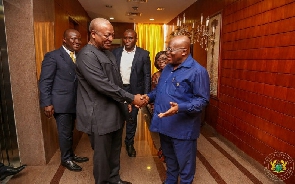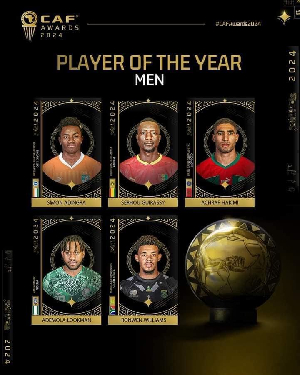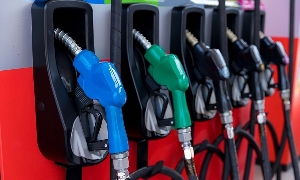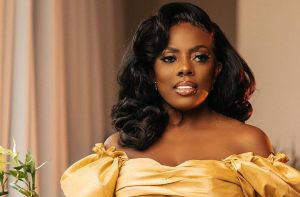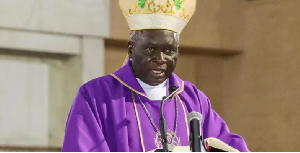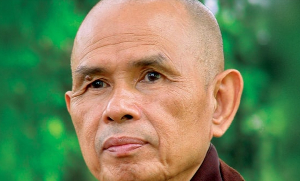Alexis de Tocqueville, a French observer of American life at the beginning of the 19th century, observed that the Americans of his day “have all a lively faith in the perfectibility of man ... They all consider society as a body in a constant state of improvement, where nothing is or ought to be permanent…”
Political and social observers have echoed this sentiment for centuries, enshrining optimism as an essential feature of not just the abstract ‘American Dream,’ but also of the social and economic institutions of American civil society.
Not that one has an unblinking obsession for the real American life, it is however the truism of the ‘perfectibility’ of man which Toqueville eloquently expresses, that engages my attention. This year, the two main contenders to Ghana’s Presidency are aspiring to ONE term in office; neither of whom can contest a further 4-year term. During this term, they may, in view of the constitutional structure and arrangements, not be safely accountable to the electorate, if elected; unless they are committed to the future of their respective parties on whose manifesto promises they are running and/or that they possess an overwhelming desire to leave a good legacy.
Needless to say, both of the two competing political parties may say they can trust their respective candidate on this issue. However, objectively speaking, the evidence on the ground clearly suggests that some Presidents under Ghana’s constitution have often been perceived or treated as much bigger than their respective parties.
Each party’s constitution imposes no effective obligations on their Presidents to have any recourse back to their respective parties nor does the National Constitution of 1992 impose any duty on a President. To demonstrate the absurdity of this lacuna in the constitution, it should be noted that a President can cross carpets in the course of his term in office, resign from his party or completely ignore his party with very little implication, save that if his party has a majority in parliament the same might be in jeopardy. This was effectively one of the issues which was considered by the Constitutional Review Committee which was set up in 2010 by the Mills’ administration but decided against any possible conditional reform.
The fact that the American constitution can throw up a character like Donald Trump should cause every constitutional expert to worry. When it comes to the crunches, even all right-thinking politicians simply vote to secure their own Jobs irrespective of what the interest of the Nation may be. In the recent impeachment proceedings against Donald Trump, only one or a few republican representatives were prepared to stick their neck out even against a tyrant like Trump. The Trump precedent is a bad example and not worthy of emulation. The not too recent shenanigans in British Politics leading to the election of Boris Johnson as Conservative party leader speaks volumes about parliamentary party control over the Government in power.
Again in Britain, the juxta-positioning of 61 conservative MPs remonstrating against Boris Johnson’s continued support for his Senior Advisor, preceded by the resignation of a Junior Minister may merely look like the baring of teeth but it surely is not the kind of action MPs in Ghana will dare emulate vis a vis a sitting President. Under our current arrangements, a Parliamentary majority, usually of the same party as the Head of state, that looks up to a Presidency to appoint at least 50% + 1 of his cabinet from amongst them, cannot be sufficiently effectual at exercising its oversight responsibilities. To a large degree, the Judiciary, if not all our constitutional institutions, when push comes to shove, also suffers from a similar conflict of interest dilemma, if not worse.
It is not surprising that Dr Ansah-Asare, a former Director of the Ghana Law School recently stated that when it comes to political matters and other sensitive decisions, Ghana’s Supreme Court, let alone the lower courts of the judiciary, are made up of timorous souls. Even before her appointment, a potential appointee to the Supreme Court, a Legal brain of a very high calibre, in my considered view, didn’t seem eager at her vetting in Parliament, to express any reservations about Ghana’s constitution: “I don’t believe in amending constitutions each time we encounter anything we don’t like.
I believe we should work round it” Meanwhile we have had this constitution for the best part of 28 years. Yes of course, which man of average intelligence will recommend amending the constitution willy-nilly; her view clearly suggests a reluctance to review the Constitution in order not to offend her appointer. The Constitutional Reform Act 2005 means that in the U.K. the Choice of the President and Justices of the Supreme Court are made on the recommendations of a reputable Commission of the Supreme Court with a constrained role for the Secretary of Justice to approve.
The recommendations are sent to the Prime Minister, whose only role is to pass on the information to the Queen, who has a duty to appoint whoever has been named. The Prime minister plays little or no role in the removal of these Superior Justices.Given the frequent portrayal of the Ghanaian MP as wimpish, it seems to me somewhat strange that the framers of Ghana’s 1992 constitution could not anticipate this but also found it necessary to invest so much power, authority and privilege in one person but placed very little or no effective duty to compel him to meaningfully account, whilst in office, even as they rendered him immune from prosecution. One wonders what their motivation was at the time.
For a country which was just retiring from what was at best, a revolution in 1991/2, one would have hoped that we could have done much better than tweak the American and Westminster forms of Government. Did we merely seek to create a tin god in J.J. Rawlings? See Article 57(4) of the National Constitution states: Without prejudice to the provisions of article 2 of this Constitution, and subject to the operation of the prerogative writs, the President shall not, while in office, be liable to proceedings in any court for the performance of his functions, or for any act done or omitted to be done, or purported to be done, or purported to have been done or purporting to be done in the performance of his functions, under this Constitution or any other law It looks like, a President probably just has to assert that he was performing his functions as President in respect of an act for which he is being investigated, in order to be exonerated from punishment.
He cannot be prosecuted whilst in Office. Even though suits can be brought under Articles 57(5) and 57(6) within 3 years of leaving office, the clauses are silent on whether it is possible to prosecute even within these 3 years, if the President purports to have been acting in the course of the Performance of his functions as President. Until it is tested in the supreme court, I believe there is a more than 80% chance that this offers almost full immunity to the occupant of the office for most kinds of illicit conduct.
Theoretically therefore, the President may even deliberately commit crimes for his own gain in the performance of his functions as President without any immediate ensuing consequences because he has Parliament and the Judiciary in his power. This may be a feature of the Presidential style of Government, but it poses a serious risk to our yet nascent democracy. For many other reasons, the party in Parliament can be unimpressive and impotent against a defiant President. In other words, whilst in office, one would have to ask a Chief Justice, whom the President just appointed to office, whether a Prima Facie case exists for the impeachment of the President and his majority in parliament whether a case has been proven.
This is unarguably preposterous. Whilst we need a constitution that provides sufficient scope and reposes sufficient powers in a President to offer firm leadership, we need one that can vigorously check the Presidency, in term, even for indolence and integrity. A constitution which permits a President to make over 200 appointments, including heads, commissions and committees involved in ensuring the checks and balances which hold our Democracy together, is clearly in need of repair. Our current constitution is believed in certain circles to be so ambiguous as to permit the President, to interfere with independent constitutional institutions in the conduct of their work.
Ghana’s constitution was effectively drafted on the ‘blindside’ of the Danquah-Busiah-Dombo- tradition - because this group of political actors boycotted the relevant consultative assembly and refused to partake in the deliberations leading to the promulgation of the 1992 constitution. The New Patriotic Party (NPP) which subsequently emerged as the main opposition party to the National Democratic Congress (NDC), has however endorsed the constitution by its subsequent adoption and deployment to run the country. In their report in 2005, the African Peer Review Mechanism identified concerns with the separation of powers between the Executive and the Legislature and the independence of the Judiciary.
In 2006 President Kufuor’s Government assured a meeting of African Heads of State in a written document committing to an extensive review of the 1992 Constitution. This has since been followed by many calls for constitutional review, resulting in assurances from the two major parties after the 2008 Presidential debates. The Mills’ Government thus commissioned an enquiry team on 11 th January 2010 after winning the 2008 elections, ultimately culminating in the formation of a 5-member Constitutional Review Implementation Commission on 11 th June 2012 to implement the White paper the Government issued on the review. However, to date the white paper remains unimplemented even after an unsuccessful supreme court challenge by the Legendary Professor Kwaku Asare as to the powers of the President to initiate constitutional reviews.
The future however has all to play for. The only serious attempt at a substantial review of the constitution, has thus come from the late President Mills of the NDC. In my view, the attempted review would still have been inadequate, even if it had been carried through. If for nothing, the National Constitution must be reformed to ensure that Government appointees are rendered extremely sensitive to the Presidential reputation. It is worrying that Governments of all shades in this country find it so difficult to dismiss wrongdoing appointees. If I am not mistaken, ‘Due Process’ is never known to delay dismissal of any apparently aberrant Minister of State anywhere around the world. Obviously, errant Ministers of state in Ghana must resign to allow their beloved Governments, the peace of mind to get on with the business of Government.
We would have to exhaustively investigate how we can regulate the conduct of future Presidents and if possible, protect them from the inimical and pernicious influences which hamper their ability to deal convincingly with corruption in the Country. With so much power and privilege, it may also be fair to place a heavier and certain obligation on Presidents to be quick at fighting corruption, whether from within or without their Governments.
Are these the powers we want to repose in President Mahama? A man running for just 1 term in Government. A man with a clear record of serious misconduct? A man on record as clearly saying stuff such as being a dead goat, yentie obia, akoko sa kyere akroma enye ne fe; all of these words were uttered by a man who is seeking to be invested with so much power, authority, privilege, immunity from prosecution and above all, the rich assets and resources of the Country. His comments suggest that he does not ‘give a hoot about what the Governed say’.Without any equivocation, Nana Addo of the ruling party is clearly seeking to build upon his firstterm in Office.
He has a huge Legacy to preserve and to protect. Free Senior High School education being the first on the list of every sensible person’s mind. There are a raft of very thoughtful and innovative ideas including funding for Tertiary education, which will require flesh on the bones. John Dramani Mahama on the other hand, has none, just a few infrastructural developments he is even alleged to have inflated the relevant prices of its essential ingredients. After 4 years away from the Presidency, after he had been booted out for corruption and incompetence, John Mahama can only claim to be hoping he can preserve the Legacy of Nana Addo, if at all.
John Mahama left no noble Legacy at the end of 2016, that is worth preserving, notwithstanding the fact that he, not only had control of Government in the 4 years from 2009 to 2013, when his immediate boss, President Mills was labouring under a terminal illness and 4 years thereafter, as substantive President. As a party that is not in power, it should not have taken them this long to have written up a manifesto unless they are depending heavily on the Governing party’s manifesto for inspiration, hence the recent postponement of their manifesto launch.
“Whoever wins Ghana’s 2020 elections should however consider overhauling Ghana’s Constitution so as to remove all the clauses which stand in the way of good Governance and in the way of effective avoidance of corruption and abuse of office; it will in addition help us to avoid any risk that Ghanaians may one day err into handing over the Country to a man with a record like John’s, who is seeking merely One term in office, to do what?”
Opinions of Sunday, 30 August 2020
Columnist: Kwame Ohene Asare Esq





